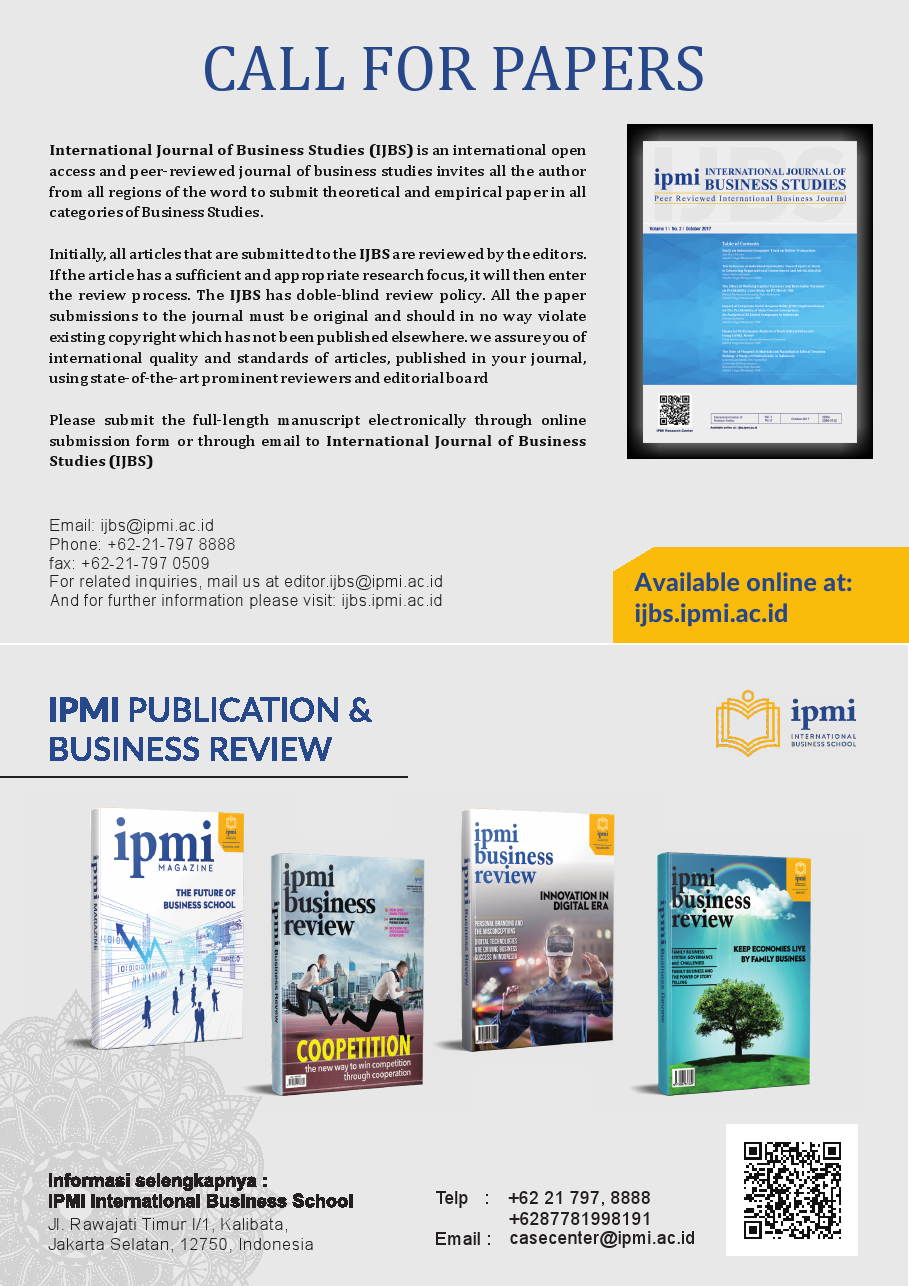The Moderating Impact of Individual Spirituality on the Relationship of Spiritual Leadership toward Individual Capability in the Form of Spirit at Work toward Organizational Objectives
DOI:
https://doi.org/10.32924/ijbs.v7i3.269Keywords:
RBV, Spirit at Work, Spiritual Leadership, Individual Spirituality, Competitive AdvAbstract
This empirical research identifies the possible resources as antecedents of Spirit at Work (SW) in an RBV framework. The research empirically examines 530 data taken from a leading telco company on the interaction between organizational resources in the form of spiritual leadership (SL) variables: Vision, hope/faith, altruistic love (AL), meaning/calling and membership toward SW, and human resource in the form of Individual Spirituality (IS) toward SW. Further, SW is tested toward Job Satisfaction (JS) and Organizational Commitment (OC) as competitive advantages in the Service Industry.
Findings show that all work related SL variables are significant toward SW. AL shows significant influence toward SW in the context of lower IS. The SW is also significantly and positively impacting JS and OC. Vision, AL and Membership which serve as the primary role and show dependence upon organizational support, are showing higher influence toward SW in lower IS. Hope/Faith and Meaning/Calling as secondary role which rely on employees’ intrinsic factors are showing higher influence toward SW in group of higher IS.
Downloads
Submitted
Published
How to Cite
Issue
Section
License

International Journal of Business Studies by Sekolah Tinggi Manajemen IPMI is licensed under a Creative Commons Attribution-ShareAlike 4.0 International License.
Authors who publish with this journal agree to the following terms:
1. Copyright Transfer Agreement Form can be downloaded HERE.
2. Authors retain copyright and grant the journal right of first publication with the work simultaneously licensed under a CC BY-SA Creative Commons Attribution-ShareAlike 4.0 International License that allows others to share the work with an acknowledgement of the work's authorship and initial publication in this journal.
3. Authors are able to enter into separate, additional contractual arrangements for the non-exclusive distribution of the journal's published version of the work (e.g., post it to an institutional repository or publish it in a book), with an acknowledgement of its initial publication in this journal.
4. Authors are permitted and encouraged to post their work online (e.g., in institutional repositories or on their website) prior to and during the submission process, as it can lead to productive exchanges, as well as earlier and greater citation of published work.















